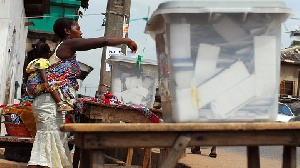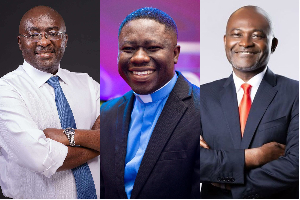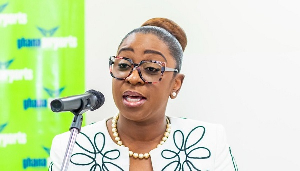The peaceful conduct of the December 7th general elections will depend largely on the effective collaboration and roles played by various stakeholders, including the military, security services, Civil Society Organizations (CSOs), the Electoral Commission, and religious communities.
Each of these stakeholders has a unique and crucial role to play in ensuring the electoral process is transparent, fair, and peaceful.
Here is a breakdown of their roles:
Military and Security Services:
Preventing Violence and Ensuring Security: The primary role of the security agencies is to maintain peace and security before, during, and after the elections. They are responsible for deterring any form of violence, intimidation, or disruption that could mar the electoral process.
Protection of Electoral Materials and Personnel: Ensuring the safe transport and security of electoral materials and the safety of Electoral Commission staff, voters, and observers.
Civil Society Organizations (CSOs):
Voter Education: Engaging in public education campaigns to inform voters about their rights, how to vote, and the importance of participating in a democratic process.
Election Monitoring: Deploying observers to monitor the electoral process, from campaigning and voting to the counting and tabulation of results, to ensure that the election adheres to both national laws and international standards.
Advocacy for Peace and Tolerance: Promoting peace and tolerance among various political factions and their supporters and advocating for non-violent communication and conflict resolution methods.
Electoral Commission:
Conduct of the Election: The Electoral Commission has the most direct role in ensuring a peaceful election. This includes the organization and management of the electoral process, ensuring transparency and fairness in the conduct of elections, and timely communication of information to the public.
Voter Registration and Education:
Ensuring that all eligible voters are registered and informed about the voting process.
Managing Disputes: Establishing clear mechanisms for handling electoral disputes to prevent them from escalating into violence.
Religious Community:
Promoting Peace and Cohesion: Religious leaders often command respect and moral authority. They can preach peace, tolerance, and the importance of democratic processes to their followers, encouraging them to participate peacefully.
Mediation and Reconciliation: offering to mediate in instances of political conflict and providing platforms for reconciliation between contending parties.
For Ghana to experience a peaceful 2024 presidential and parliamentary election, all these stakeholders must work collaboratively, respecting their roles and responsibilities. Their collective efforts will not only contribute to the smooth conduct of the elections but also strengthen Ghana's democracy.
Opinions of Tuesday, 26 March 2024
Columnist: Bill Godson Ocloo















